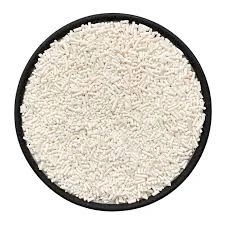
isopropyl alcohol solution
An Overview of Isopropyl Alcohol Solution Uses, Benefits, and Safety Precautions
Isopropyl alcohol, often referred to as isopropanol or rubbing alcohol, is a colorless, flammable chemical compound with a strong odor. It is commonly found in various concentrations in households and industries, primarily known for its properties as a solvent, disinfectant, and antiseptic. This article will explore the various uses and benefits of isopropyl alcohol solution, as well as important safety precautions that should be observed when handling it.
Composition and Concentrations
Isopropyl alcohol is typically available in various concentrations, most commonly at 70% and 99%. The 70% solution is widely used in medical settings due to its optimal balance of water and alcohol, which helps to denature proteins, thereby effectively killing bacteria, viruses, and fungi. At this concentration, it penetrates cell walls more effectively than higher concentrations, providing better disinfection properties without evaporating too quickly.
Primary Uses
1. Disinfection and Antisepsis One of the most significant uses of isopropyl alcohol is as a disinfectant. It is effective against a broad spectrum of pathogens, making it a staple in hospitals and clinics for cleaning surfaces, instruments, and skin before injections. Additionally, it is often employed in home settings for sanitizing countertops, doorknobs, and other frequently-touched surfaces.
2. Solvent Isopropyl alcohol is a non-polar solvent, which makes it effective in dissolving oils, resins, and other organic compounds. This property makes it invaluable in various industries, from pharmaceuticals to electronics, where it is used to clean delicate components and remove residues without damaging the surfaces.
3. Personal Care Products Many personal care products, such as hand sanitizers, perfumes, and aftershaves, contain isopropyl alcohol due to its antiseptic properties and ability to evaporate quickly. It’s also found in some beauty products for its effectiveness in removing makeup.
isopropyl alcohol solution

4. Laboratory Use In scientific research and educational laboratories, isopropyl alcohol is often used for cleaning glassware and instruments. Its quick evaporation rate makes it less likely to contaminate samples, an essential factor in maintaining accuracy and reliability in experiments.
Benefits
The advantages of using isopropyl alcohol are manifold it is relatively inexpensive, readily available, and versatile. Its effectiveness as a disinfectant has been crucial during public health crises, such as the COVID-19 pandemic, where the need for efficient surface cleaning and hand sanitization has increased significantly. Furthermore, it evaporates quickly without leaving residue, making it suitable for numerous applications.
Safety Precautions
While isopropyl alcohol is incredibly useful, handling it requires caution. It is flammable, and its vapors can irritate the respiratory system. Ingestion or prolonged skin contact can lead to adverse health effects. Therefore, when using isopropyl alcohol
- Always work in a well-ventilated area to avoid inhaling fumes. - Keep it away from open flames and heat sources. - Use gloves and goggles to protect skin and eyes, especially when using higher concentrations. - Store it in a cool, dry place, away from direct sunlight and out of reach of children.
Conclusion
Isopropyl alcohol solution is an essential household and industrial product with a wide array of applications ranging from disinfection to cleaning. Its effectiveness and versatility make it a valuable asset, especially in times of health crises. However, it is crucial to follow safety guidelines to mitigate any risks associated with its use. Understanding the properties, benefits, and appropriate handling practices of isopropyl alcohol ensures that users can safely harness its capabilities while reaping the full benefits of its applications.
-
The Safety Challenges of Ammonium Nitrate FertilizerNewsJun.26,2025
-
The Critical Role of Mining ChemicalsNewsJun.26,2025
-
Shelf Life of Glacial Acetic Acid Food GradeNewsJun.26,2025
-
Enhancing PVC Longevity with 1,2,3-Benzotriazole InnovationsNewsJun.26,2025
-
China’s Dominance in Food Additive ProductionNewsJun.26,2025
-
Can Aluminum Hydroxide Replace More Toxic Alternatives?NewsJun.26,2025
-
PE and PP Plastics with Benzotriazole AdditivesNewsJun.12,2025
Hebei Tenger Chemical Technology Co., Ltd. focuses on the chemical industry and is committed to the export service of chemical raw materials.
-

view more DiethanolisopropanolamineIn the ever-growing field of chemical solutions, diethanolisopropanolamine (DEIPA) stands out as a versatile and important compound. Due to its unique chemical structure and properties, DEIPA is of interest to various industries including construction, personal care, and agriculture. -

view more TriisopropanolamineTriisopropanolamine (TIPA) alkanol amine substance, is a kind of alcohol amine compound with amino and alcohol hydroxyl, and because of its molecules contains both amino and hydroxyl. -

view more Tetramethyl Thiuram DisulfideTetramethyl thiuram disulfide, also known as TMTD, is a white to light-yellow powder with a distinct sulfur-like odor. It is soluble in organic solvents such as benzene, acetone, and ethyl acetate, making it highly versatile for use in different formulations. TMTD is known for its excellent vulcanization acceleration properties, which makes it a key ingredient in the production of rubber products. Additionally, it acts as an effective fungicide and bactericide, making it valuable in agricultural applications. Its high purity and stability ensure consistent performance, making it a preferred choice for manufacturers across various industries.











